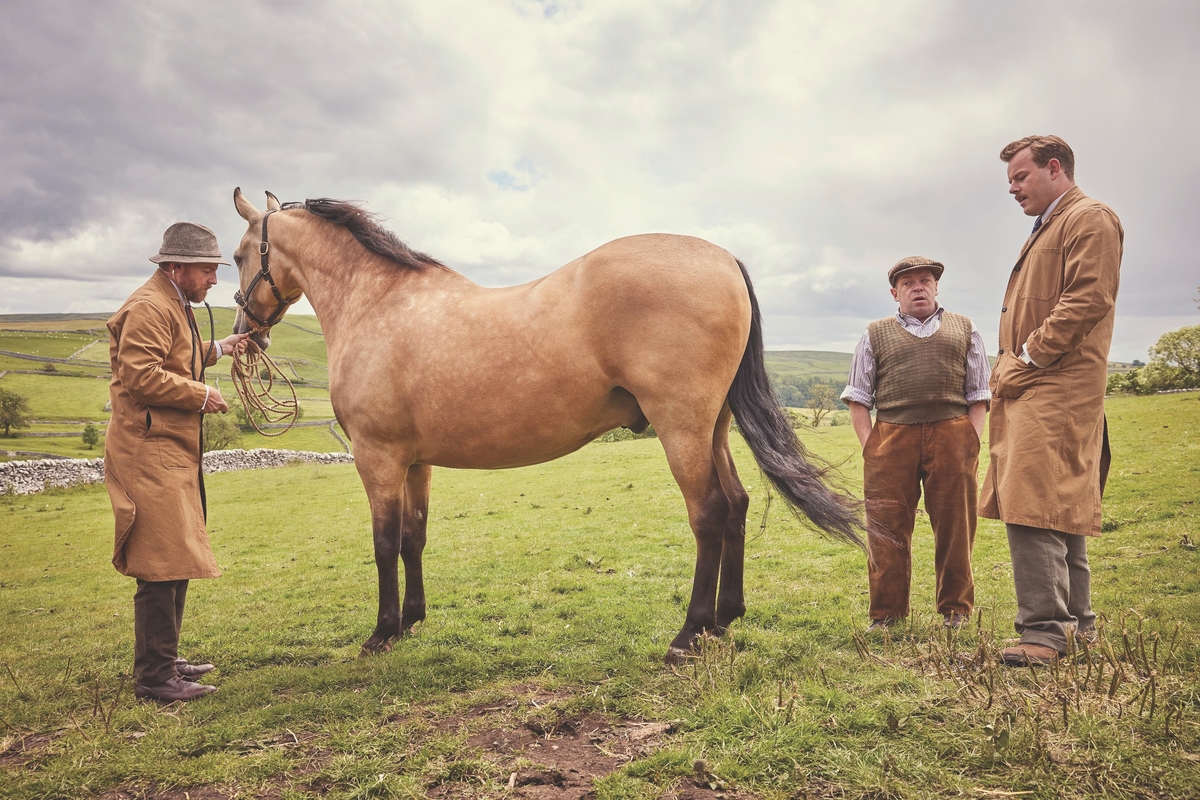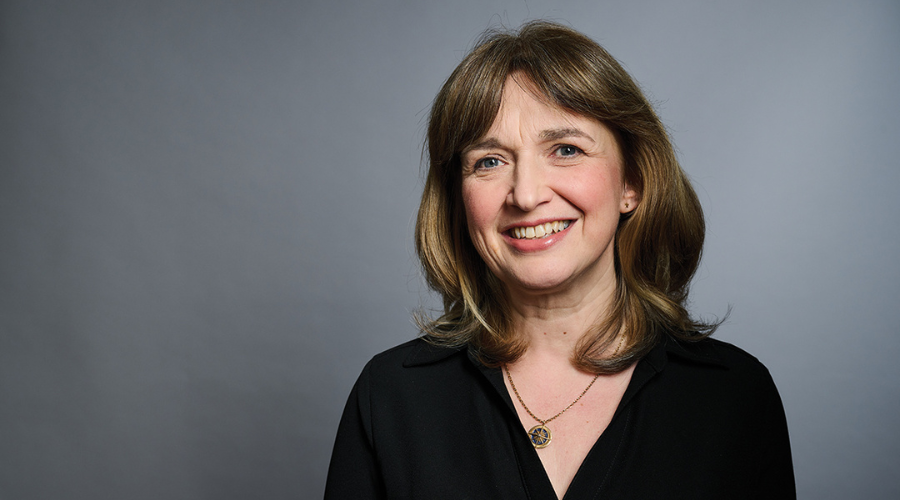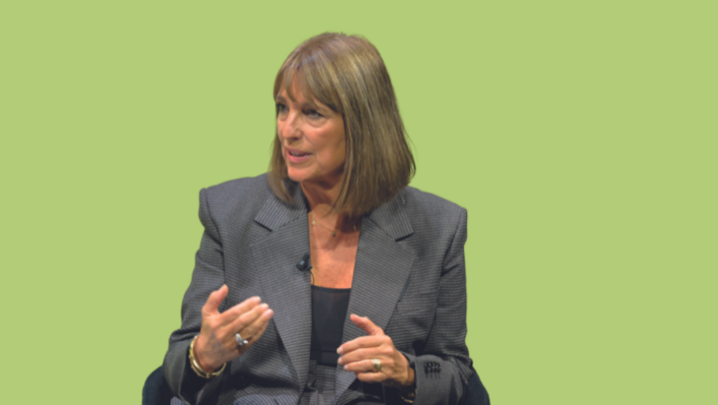Channel 5 President Sarah Rose walked down the aisle last year to the dramatic theme from HBO’s Succession. Nicholas Britell’s unsettling tune won’t top many bridal playlists, but “if you actually listen”, says Rose, “it’s a very good wedding march”.
For a leader with a career that has been steeped in commercial broadcasting, most recently at Channel 5 owner Paramount Global — the historic studio that will soon have new owners in David Ellison’s producer-financier Skydance Media — the musical stylings make more sense than even Rose may care to admit.
When she joined Paramount during the pandemic in 2020 as Chief Operating Officer for the UK, Rose stayed behind the scenes. But in February this year she was named President of Channel 5 and UK Regional Lead – a chief executive role that thrust her firmly into public view.
Rose now has the unenviable task of steering the ship as speculation swirls about the broadcaster’s future under Skydance, which envisions Paramount as a tech-media hybrid. “The question is whether they see the continued ownership of a linear network in the UK as part of their strategy,” says one senior source.
Of late, Channel 5 has led with its editorial voice – a largely unfiltered one belonging to the maverick Ben Frow. The plainspoken Paramount UK Chief Content Officer is credited with turning the channel’s fortunes around, thanks to smart commissions such as The Yorkshire Vet, now in its 18th series, and dramas such as All Creatures Great and Small, which speak to Britain’s older, regional audiences.

(Credit: Channel 5)
But in the last year, as Channel 5 has more deeply considered its streaming future, it is the digitally-minded Rose who has grabbed the spotlight. She is a forward-thinking leader who played key roles in launching ITV’s digital channels and Channel 4’s early catch-up service, 4oD.
At September’s RTS London Convention, Rose took the stage alongside peers from multinational companies and impressed delegates by speaking up for UK public service broadcasters and freelancers. “Her leadership is at the top level of regulatory matters, strategy, talent and navigating that whole system as one of the smaller players,” says analyst Claire Enders. “She is an exponent of the value of public service broadcasting.”
Born in Southport to a teacher and a telecoms engineer, Rose enjoyed a “very solid” childhood in the north. But from the time she began watching television, she knew she wanted to work in media. After winning a free place at a private all-girls school, Rose excelled academically and obtained an MA at Oxford in English and French. “It was a big deal in my family, and in my whole area,” she says.
Her dream was to produce Woman’s Hour at Radio 4, and after university she secured a place at Goldsmiths for radio feature production. Then she spotted a Guardian advertisement for a Carlton Television trainee scheme paying about £10,000 and did that instead. Rose credits the two-year graduate management scheme for setting her career in motion. Newly arrived in London, she worked in every department at Carlton, including business affairs, finance and production.
After the two years, she joined ITV to oversee its new stable of digital channels, just as Britain’s TV market was about to explode from five channels to 300. “I commissioned, scheduled, learned and worked crazy hours,” she says. “It was such an exciting time.”
By the early 2000s, during which she helped relaunch ITV2 and establish ITV3, ITV4 and CITV, technology was quickly advancing and kicking open new frontiers for media. The future was on-demand. In 2006, Rose jumped to Channel 4, charged with combining its digital channel portfolio and launching 4oD. “I went for it with a vengeance,” she says.
Broadcaster-owned streaming platforms now feel intuitive, but in the early 2000s, VoD was still nascent. Even so, says Rose: “You could just see that it was coming.” In November 2006, 4oD launched, charging 99p per episode for shows such as Desperate Housewives and Lost. This was more than a year before the BBC launched iPlayer on Christmas Day 2007.
After 14 years, Rose left Channel 4 during Covid when the broadcaster restructured her consumer and strategy role. Moving to Channel 5 ticked a lot of boxes: she would continue her career in public service commercial broadcasting, but – for the first time – work for a US-owned company on the brink of a major international streaming launch.
“She’s one of the few people who has a nuanced understanding of what’s driving all of these different parts of the business,” says Wonderhood Studios co-founder David Abraham, who as Channel 4 CEO encouraged Rose to study research and data.
‘Ben Frow is brilliant. We're very honest with each other’
In January 2024, Channel 5 reported its fifth consecutive year of growth, and was the only commercial PSB to increase its audience share in peak time, year on year. Keen to capitalise on the momentum, Rose went to New York in April to pitch for much-needed investment for 5’s rebrand. She had a precious two hours scheduled with Paramount CEO Bob Bakish. That same day, he announced his departure. Unfazed, Rose presented instead to new CEOs George Cheeks, Chris McCarthy and Brian Robbins.
“We’re in digital, and I didn’t want to wait a year while we got new owners,” says Rose. “And they backed us and gave us what we asked for.”
In 2025, Channel 5 and My5, which has grown by 55% this year, will relaunch as 5. The streamer will have a new interface and expanded content that includes shows from stablemates MTV, CBS, Comedy Central and Paramount+. “In a decade, we will not be in a pay linear world,” says Rose. “We’ll be in a streaming world.”
Will Ben Frow be part of that world? Rumours flew when he pulled out of August’s Edinburgh TV Festival. Rose, however, is adamant that “he’s staying on”. Frow approached Television in the Channel 5 lobby before this interview, appearing rested and fizzing with ideas after a spell on jury duty in September. Edinburgh, it turns out, coincided with the filming of Cast Away with Phillip Schofield, a big win for the channel that drew 2.4 million to linear and catch-up over seven days. “[Schofield] wanted to work with us,” says Rose. “He turned a lot of other things down.” But Frow and commissioner Guy Davies convinced him to take the leap.
Rose describes her bond with Frow as “the best creative relationship” she has ever had. When she was named President, some wondered how they would get on, but “we’ve not had a ripple”, she says. “We’re very honest with each other, we have dinner and we chat a lot. He’s brilliant.”
Frow’s Midas touch combined with Rose’s tech savvy could help Channel 5 thrive in a streaming world. But whether that will be enough for Skydance is the billion-dollar question. Paramount Global this year trimmed 15% of its US workforce (about 2,000 jobs) as part of a $500m annual cost-savings plan. Over time, Skydance wants to cut $2bn, mainly from linear operations.
One American mergers and acquisitions advisor tells Television it’s “very likely” Skydance could sell Channel 5. “It’s its own little entity within a vast portfolio,” he says.
It’s impossible to know where the chips will land, says Rose, “but I feel really comfortable with what we’re doing.” My5’s strong streaming performance and content strategy has helped galvanise Paramount top brass. “As long as we keep delivering results — which we do — we get the support,” Rose concludes.






